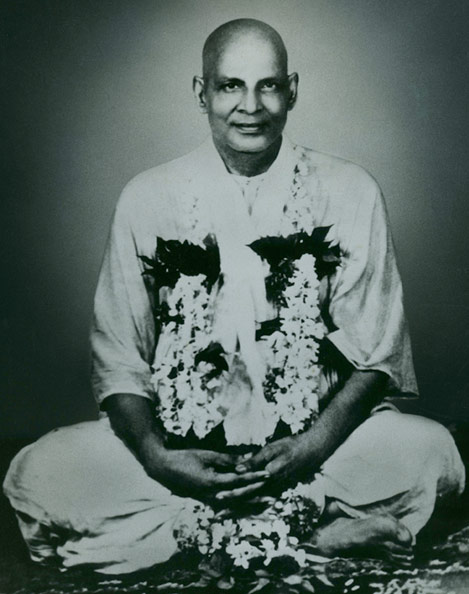Who else but oneself can help rid oneself of the bondage caused by the chains of ignorance, desire, action and so on, even in a hundred crore of kalpas? (60)
The bondage felt by the mortal is caused by the ignorance of his own real nature. This ignorance of his own all fullness in his spiritual personality creates in his intellect, waves of desires with which he expects to make himself full. Desires create thought waves in his mind, and thoughts express themselves as action.
These three - ignorance, desire and action - are together called in Vedanta sastra as the "heart knots' (hrdaya granthi). These are the cords that bind the ego (jiva) to the finitude and sorrows of a mortal.
What is avidya? ignorance; ignorance of what? In vedantic context, ignorance means ignorance of my own real nature. Ātma avidya ityarthaḥ;
And what is the next strand? kama, which is the consequence. How does avidya cause kama? Kama means desire; so my real nature is purnatvam; fullness. And if I am ignorant of my fullness; I am going to mistake myself as incomplete.
And once I have concluded that I am incomplete, then what happens? I have to struggle to make myself complete.
And this struggle for completion is called kamah; and the kama leads to varieties of karma;
In this enumeration of ignorance, desire and action when Sankara adds 'and the like' he means, the residual impressions (vasanas) that are left on the mind when a desire prompted activity is consciously undertaken. These vasanas thicken the ignorance by darkening desires, agitating thoughts and propelling us into a world of frenzied activity.
The Acharya, naturally asks, who can save a man from the chaos in his mind and intellect which is responsible for his rabid activities in the world of objects and his painful confusions in his relationships with his fellow beings? The answer is contained in the question itself; none but he himself.
Guru also can give assistance by teaching. Sastra also can assist the guru kripa can help; sastra kripa can also help; even Isvara kripa can only give assistance; but none of them can replace our Will or effort and therefore our freewill has to be appropriately used.
Sankara asks; Atmanam vina kaha bandam vimochitum saknuyad. Who can remove the bondage? So who can throw away the bondage; remove the shackles; atmana vina; other than oneself.
Even God cannot remove my bondage, guru cannot remove my bondage, sastra cannot remove one’s bondage, if one try to removes; if one works for the removal, they can all assist him.
The term 'kalpa' is used to indicate the entire duration of one universe from its day of creation to the day of doom. It has been calculated that the life of the universe is one day of the Creator which is equivalent to 432 million years, in terms of calculation of time, possible with our finite and limited time.
Love



.png)





